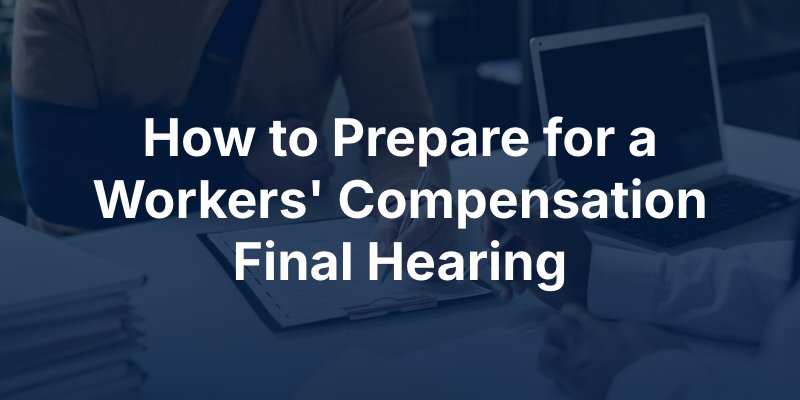What to Expect During a Workers’ Compensation Final Hearing
Request Free ConsultationWorkers’ compensation is a lifeline for employees who suffer injuries or work-related illnesses while on the job. In Missouri, workers’ compensation pays for medical expenses and provides just under 67% of an employee’s standard pay while they recover. It also provides disability and death benefits. Most workers’ compensation claims end with a settlement agreement between an employer’s workers’ compensation insurance provider and the injury victim and do not go to trial. However, in some cases, workers’ compensation denies valid claims due to a paperwork error, an employee’s failure to notify an employer in writing, or a missed deadline. In other cases, they fail to offer an adequate settlement amount. Fortunately, a claim dispute or denial doesn’t have to be the end of the case. Many workplace injury victims go on to file successful appeals.
If you’ve filed an appeal or have an unresolved dispute in your St. Louis workers’ compensation case, you can expect to attend a final hearing.

Before the Final Hearing for a Workers’ Compensation Claim
When a workers’ compensation case isn’t resolved through filing a claim, negotiations, or mediation attempts, a judge makes the final decision at a hearing. As the hearing date approaches, both sides must make full disclosures. As the injury victim in the case, you and your injury attorney will disclose all of your medical evidence, eyewitness testimony, and verification of your medical costs and income loss. The insurance company must also disclose any information they have that’s led them to dispute your claim. The final discovery packets are submitted to the judge and a pre-trial conference takes place with both sides telling the court what they intend to prove or disprove at the hearing.
What Happens at a Workers’ Compensation Hearing?
A workers’ compensation hearing is an evidentiary trial that works just like other civil trials, with the burden of proof on the injury victim—the plaintiff. Before the trial takes place, your injury attorney compiles evidence and ensures that you are ready for the hearing and know what to expect.
At the hearing, the standard rules of evidence apply, just as they would in any civil trial. All involved parties appear before the judge and present their evidence and testimony to a judge and court reporter. Each side may object to some forms of evidence and the judge must decide if the evidence is admissible or the testimony allowed.
As the injury victim, the judge will require you to testify under oath. Eyewitnesses and expert witnesses, such as medical experts may also testify. The insurance company’s representatives, and sometimes the employer, will present their expert witnesses as well. Both sides may cross-examine witnesses and object to any testimony they find irrelevant or misleading.
After the hearing, both sides typically file “briefs” outlining their case to the judge. The judge then takes some time to review the evidence, court transcripts, and briefs before making a final decision. If the judge decides in your favor, workers’ compensation insurance must pay you the amount awarded to you within 90 days of the hearing’s last day.

